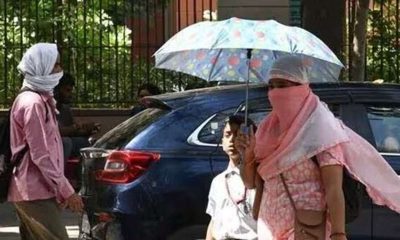India News
Monsoon this year likely to be delayed, may be below normal as well
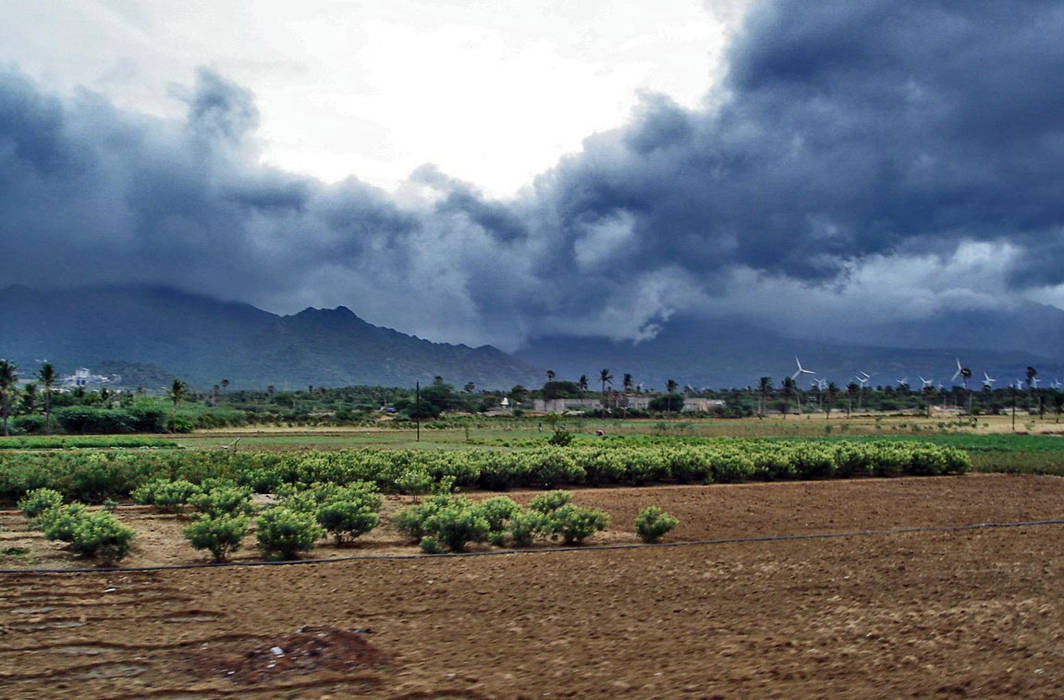
[vc_row][vc_column][vc_column_text]The Southwest monsoon that accounts for about 75 per cent of rainfall in India and is the most anticipated weather phenomenon in the country is likely to miss its date with Kerala on June 1 and arrive a few days late.
The India Meteorological Department (IMD) forecast for 2019 released today (Wednesday, May 15), as reported by The Indian Express (IE) and The Hindu, says it would hit the Kerala coast six days late, on June 6. Private weather forecaster Skymet puts its arrival date as June 4.
In 2017, the onset over Kerala happened two days in advance (May 30) whereas in 2018, the onset was realised on May 29, which was three days preceding the normal onset date over Kerala.
In Andaman and Nicobar islands, the IMD said, monsoon will arrive towards the end of this week, later than normal. It usually arrives over the islands anytime between May 10 – May 15.
“Conditions are becoming favourable for monsoon to advance onto Andaman and Nicobar islands around May18 or May 19,” the forecast suggested.
Generally, the monsoon reaches Kerala within 10 days of reaching the Andamans. However, meteorologists had indicated that the monsoon — impeded by high temperatures in the seas surrounding India, and an El Nino — will advance sluggishly after reaching Kerala.
To forecast the monsoon arrival, the IMD uses a customised weather model which, it stated, had been wrong only once – in 2015 – since 2014.
This model crunches 6 meteorological parameters: the minimum temperatures over northwest India; the pre-monsoon rainfall peak over south Peninsula; the outgoing long-wave radiation (OLR) over the South China Sea; the lower tropospheric zonal wind over southeast Indian Ocean; the upper tropospheric zonal wind over the east equatorial Indian Ocean; and the outgoing long-wave radiation (OLR) over the southwest Pacific region.
The model has a built-in error margin of four days and prediction of aJune 6 onset can mean any day from June 2-10.
The monsoon’s arrival time, the IMD said, had no bearing to the quantum of rainfall in June-September period.
The IMD said it expected a “normal monsoon” but pointed to a “significant probability” of below normal rains.
But the Skymet forecast could e reason for worry. Skymet has maintained, in line with its earlier forecast, that the rains would be poor this year at 93 per cent of the normal.
According to its forecast, the drought-affected regions of Marathwada and Vidarbha in Maharashtra, along with parts of Gujarat and Madhya Pradesh, will face nearly 9 per cent deficiency in the June-September rains, reported The Business Standard (BS).
Rajasthan, northern Karnataka and Rayalseema could also see poor rain, Skymet said. While the model error for the amount of rain is 5 per cent, that for the date of arrival is two days.
“All four regions are going to witness lower than normal rain this season. East and northeast India and the central parts will get poorer rain than northwest India and the southern peninsula,” Jatin Singh, managing director at Skymet, was reported as saying.
The initial advance of the monsoon over peninsular India in June is going to be slow, the weather agency said. What does not augur well for the economy is that Skymet expects multiple agrarian regions to have a serious shortfall in rain.
On the other hand, observations by global weather agencies that show weaker El Nino conditions in the monsoon period could limit the scarcity to some extent. All long-range forecasts, however, are prone to error due to the complexity of the Indian monsoon system. Skymet’s forecast of a fully normal monsoon (100 per cent) last year was proven wrong when the actual rainfall turned out to be 91 per cent of the normal.
Independent weather observers concurred with Skymet on the onset date, the BS report said. They said temperatures in the mainland dropped a bit due to a series of western disturbances, which are causing thunderstorms in Delhi and other states. This is delaying the development of low-pressure areas in central India and desert regions, they added.
[/vc_column_text][/vc_column][/vc_row]
2024 Lok Sabha Elections
Bollywood actor Neha Sharma campaigns for her father Ajit Sharma in Bhagalpur, Bihar
The Bollywood actor posted a video on her Instagram handle which showed her journey through various districts of Bihar, including Kishanganj, Banka, Purnea and Katihar. She was dressed in a traditional salwar kameez and was seen greeting and encouraging the public to cast their votes.

Bollywood actor Neha Sharma’s recent participation in a roadshow in Bihar has taken the internet by storm. Sharma, known for her roles in films like Tum Bin 2 and Crook, was seen supporting her father, Ajit Sharma, who is contesting from Bhagalpur Lok Sabha seat on a Congress ticket. The roadshow came amid speculations that the actor might enter politics. But, it is now clear that she was just campaigning for her father.
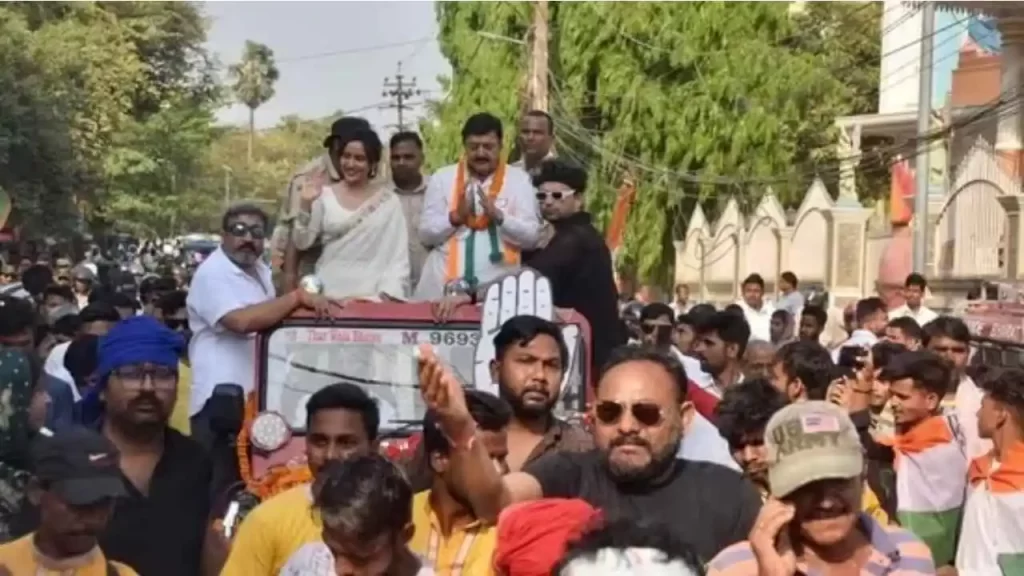
The Bollywood actor posted a video on her Instagram handle which showed her journey through various districts of Bihar, including Kishanganj, Banka, Purnea and Katihar. She was dressed in a traditional salwar kameez and was seen greeting and encouraging the public to cast their votes.
The actor received a warm reception and love from a large crowd in Pirpainti and Kahalgaon during her roadshow. She wrote on Instagram that it is said when someone gives one a place in their heart, then they live there forever. She said her heart is full of all the love and support she was receiving from the people. She thanked the people for the warm welcome she got in Pirpainti and Kahalgaon. Aapka pyar sar ankhon par.
Another video, circulating on social media showed the actor actively participating in her father’s election campaign in Bhagalpur. The election to the Bhagalpur Lok Sabha seat is set to take place in the 2nd phase on April 26. Ajit Sharma is representing the Congress and is up against JDU’s Ajay Kumar Mandal in this seat.
Earlier, there had been rumours and speculations that Neha Sharma might join politics. But many reports have clarified that she is not making her political debut yet. The Bollywood actor had been offered the opportunity to join politics by her father Ajjit Sharma but she is currently focusing on her acting career.
Education
Farmer’s son Nilkrishna Gajare Nirmalkumar from Maharashtra scores 100 NTA score in IIT-JEE Mains 2024
Nilkrishna Gajare’s father is a farmer and had to discontinue his own education after Class 12 as he faced financial difficulties. Gajare faced financial challenges growing up. However, his unwavering dedication and strategic approach to preparation set him apart from the crowd.

Nilkrishna Gajare, who hails from Maharashtra’s Washim, achieved an extraordinary feat by securing a perfect score of 100 in the JEE Main 2024 examination. His journey from humble beginnings to the pinnacle of success is a source of inspiration for many people.
Nilkrishna Gajare’s father is a farmer and had to discontinue his own education after Class 12 as he faced financial difficulties. Gajare faced financial challenges growing up. However, his unwavering dedication and strategic approach to preparation set him apart from the crowd, which resulted in his remarkable achievement of emerging as topper of one of India’s toughest Engineering entrance exams.
Nilkrishna Gajare had a strategic plan that helped him succeed in IIT-JEE 2024. According to Nilkrishna persistence is important and one should never stop trying until they understand a topic. He said being curious and asking questions are important traits of a good student. He said one should not be ashamed of asking questions.
Nilkrishna spent around 10-15 hours every day studying on his own for the JEE Main exam. He mentioned that he used his class notes for Physics and Physical Chemistry. For organic chemistry and inorganic chemistry, he relied on both notes and practice questions.
As for Mathematics, he believed that practicing regularly was the most important thing for him. Other interests of Nilkrishna include archery. He has participated at both state and national levels, and he finds joy in the sport. He said archery helps him understand the importance of focusing his attention on his goals. Nilkrishna likes watching movies and said they are a great source of enjoyment and relaxation.
He likes to watch a movie after exams and occasionally treats himself to one each week too. Gajare aims to keep up the pace for the JEE-Advanced exam and hopes to get into the IITs. He said he wants to secure admission in IIT-Bombay in the computer science branch.
2024 Lok Sabha Elections
Lok Sabha elections: Samajwadi Party chief Akhilesh Yadav files nomination from Kannauj
The Samajwadi Party has announced Akhilesh Yadav as its official candidate for the Kannauj Lok Sabha seat today
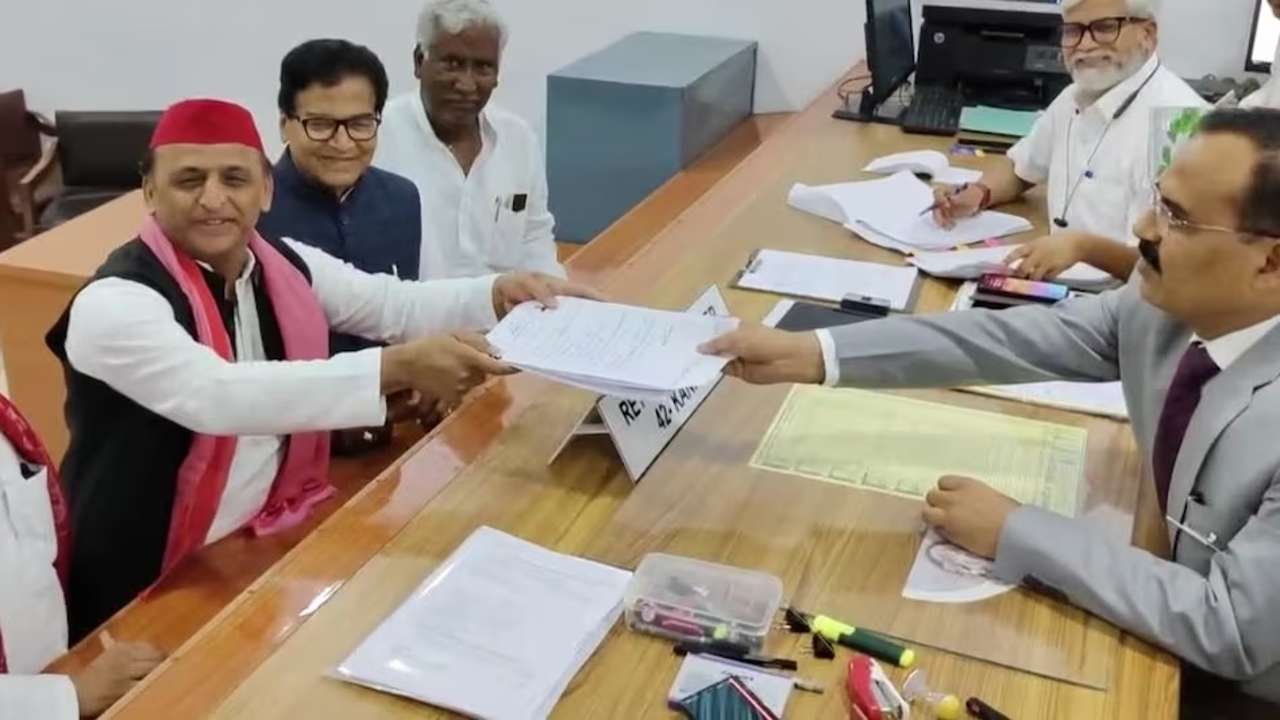
Samajwadi Party (SP) chief Akhilesh Yadav, submitted his nomination for the Kannauj Lok Sabha constituency ahead of tomorrow’s second round of voting. In front of Ram Gopal Yadav and other party leaders, the chief of the SP, who had previously contested the seat in 2000, 2004 and 2009, submitted the nomination.
Speaking with media, Ram Gopal Yadav said that SP would win the seat by a huge margin. The BJP candidate might lose his deposit in the seat, he said.
The Samajwadi Party has completely reversed its earlier plan to field former Mainpuri MP Tej Pratap Singh Yadav as their candidate, which is a significant political development.
Earlier, Akhilesh Yadav told reporters, people will find out when the nomination takes place, in reference to the speculations that he will contest for the seat. The historic victory of Kannauj is the subject of inquiry.
The former chief minister continued, the people have decided that the India bloc is coming as the future and the BJP will be history in this election.
Notably, elections for the Kannauj seat are scheduled for May 13, which would intensify the political drama that is now playing out in Uttar Pradesh. Previously regarded as the Samajwadi Party’s stronghold, the seat was lost by the party in the 2019 election when Subrat Pathak of the BJP won with a resounding victory.
The candidates competing for the following Uttar Pradesh seats will find out their destiny in the second round of voting, which is scheduled for tomorrow, Amroha, Meerut, Mathura, Baghpat, Aligarh, Ghaziabad, Gautam Buddh Nagar, and Bulandshahar.
Notably, two Bollywood celebrities running as BJP candidates in the second round are Hema Malini from Mathura and Arun Govil from Meerut. There are 91 contestants from UP competing in the second phase.
The seats in Gautam Buddha Nagar and Mathura are up for grabs, with a maximum of 15 applicants per seat. In Bulandshahr, six candidates are vying for the presidency. There are twelve contenders running in Amroha, eight in Meerut, seven in Baghpat, and fourteen in Ghaziabad and Aligarh.
1,67,77,198 votes will decide these candidates’ fates.
-

 India News6 hours ago
India News6 hours agoLandslide hits Arunachal Pradesh, highway linking Indo-China border affected
-
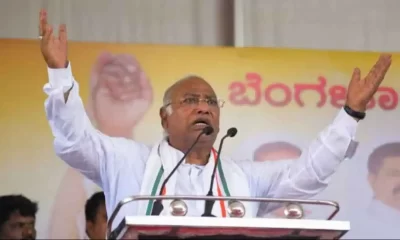
 2024 Lok Sabha Elections23 hours ago
2024 Lok Sabha Elections23 hours agoMallikarjun Kharge vows to continue politics till his last breath to defeat BJP
-

 2024 Lok Sabha Elections23 hours ago
2024 Lok Sabha Elections23 hours agoNitin Gadkari says he’s better now after collapsing at election rally in Maharashtra’s Yavatmal
-

 Education4 hours ago
Education4 hours agoFarmer’s son Nilkrishna Gajare Nirmalkumar from Maharashtra scores 100 NTA score in IIT-JEE Mains 2024
-

 Entertainment5 hours ago
Entertainment5 hours agoBollywood stars Salman Khan, Alia Bhatt, Rekha, Sonakshi Sinha, Aditi Rao Hydari attend Sanjay Leela Bhansali’s Heeramandi premiere
-

 India News7 hours ago
India News7 hours agoTamannaah Bhatia summoned in illegal IPL streaming app case, to appear before cyber cell on April 29
-

 Cricket news7 hours ago
Cricket news7 hours agoIPL 2024: Rishabh Pant, Axar Patel score half centuries as Delhi Capitals beat Gujarat Titans by 4 runs
-
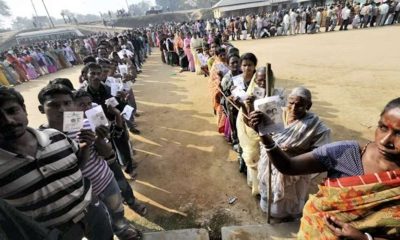
 2024 Lok Sabha Elections5 hours ago
2024 Lok Sabha Elections5 hours agoBihar: Election Commission extends voting timings for 4 Lok Sabha seats due to heatwave

